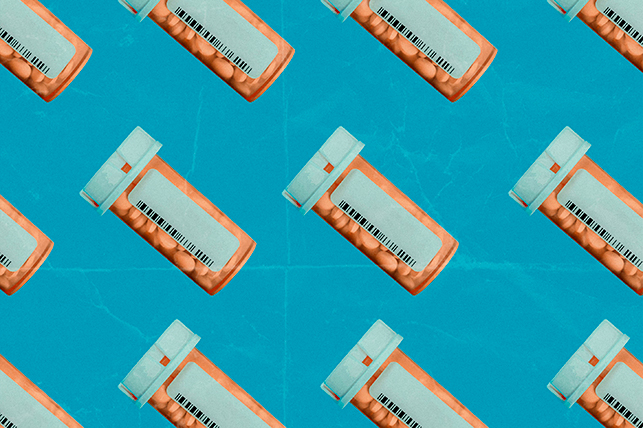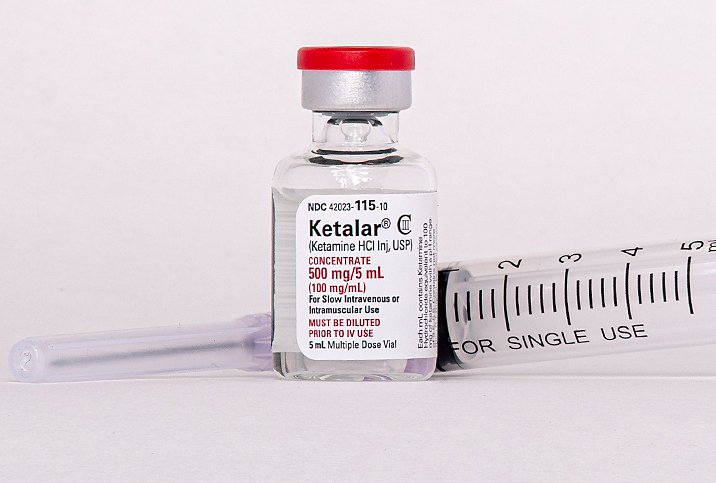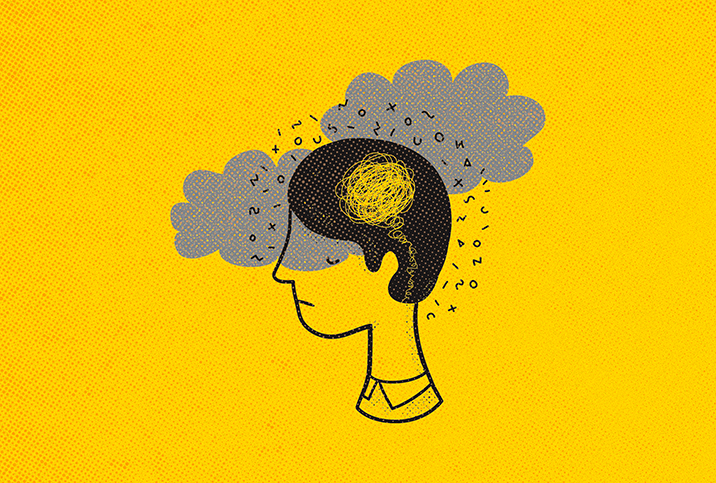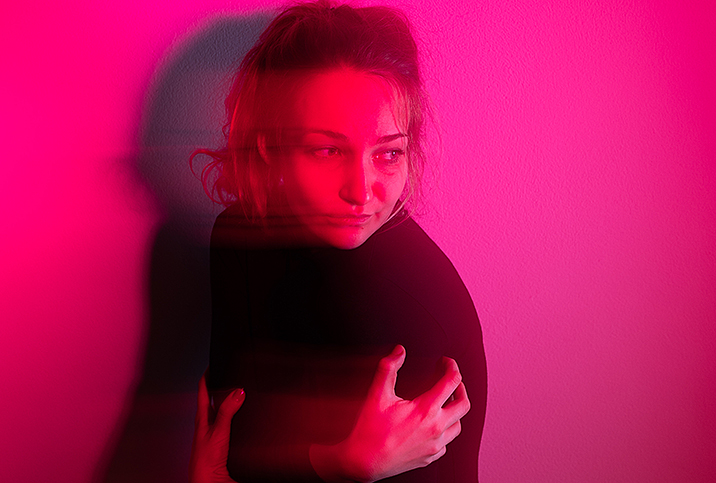Ketamine and Your Sex Drive: Can This Depression Treatment Help?

Key Points
- For some people, ketamine treatments can help with the symptoms of depression and improve libido.
- It can be helpful in treating other mental health disorders, such as anxiety and post-traumatic stress disorder (PTSD).
- More research needs to be done, however, and not all forms of ketamine treatment are FDA-approved.
Depression carries with it many symptoms, including decreased libido and erectile dysfunction (ED), and ketamine therapy is becoming an increasingly popular treatment for depression.
Does that mean ketamine could also help with the sexual side effects of this common mental health issue?
How does ketamine help depression?
Ketamine is used by people suffering from health conditions that include the following:
- Treatment-resistant depression
- Post-traumatic stress disorder (PTSD)
- Obsessive-compulsive disorder (OCD)
- Anxiety
- Eating disorders
Researchers discovered a significant improvement in depression and anxiety symptoms after patients' first ketamine dose for depression, a 2019 study suggested.
Many people share their experiences online. The ketamine for depression Reddit is flooded with people who have had mostly positive experiences with the drug.
"Ketamine therapy results in neuroplasticity or a structural rewiring of the circuits within the brain. Many patients with depression find themselves caught within an ongoing cycle of hopelessness and seeing the world in a negative light," said Quinn M. Snyder, M.D., the chief medical officer at Daytryp Health and Wellness in Phoenix. "Ketamine helps patients break out of these harmful patterns by providing new perspectives through generating new neuronal pathways within the brain."
How does ketamine work for depression?
Ketamine blocks the NMDA receptor and affects glutamate, the major excitatory neurotransmitter in the brain. This causes the release of a protein called brain-derived neurotrophic factor (BDNF), which encourages the growth and repair of neurons and synapses.
"By reducing the amount of glutamine in these receptors, the brain is able to calm and experience an antidepressive effect by lowering feelings of anxiety that are common with major depressive disorder," said Jes Montgomery, M.D., a psychiatrist and the medical director at All Points North in Dallas-Fort Worth.
Ketamine affects the serotonin system, increasing levels of noradrenaline in the brain, which helps to improve mood and decrease the symptoms of depression, said Ketan Parmar, M.D., a forensic psychiatrist with ClinicSpots in Navi Mumbai, India.
"Ketamine may also mitigate pain (physical and emotional) through its complex interaction at the opioid receptors and [has] anti-inflammatory effects," said Michelle Weiner, D.O., M.P.H., the director of integrative pain management at Spine and Wellness Centers of America with multiple locations in Florida.
Recommended
- Once Shuttered, Psychedelics Return As Psychiatric Treatment: Psychedelics may be more effective than traditional drugs for some psychiatric conditions.
- What Are the Long-Term Side Effects of Antidepressants?: If you suffer from depression, antidepressants can be a lifesaver. But do they pose risks?
- How Ketamine Therapy Offers Hope For Treatment-Resistant Mental Illness: From dance clubs to the therapist's couch, Special K leads the psychedelic therapy revolution.
What are the side effects of using ketamine to treat depression?
While ketamine as a treatment for depression is considered safe, there are potential side effects that typically resolve within one to two hours of receiving the treatment, according to a 2021 study.
The most common side effect from a single dose is feeling "strange/weird/loopy," a 2020 study said.
"One thing worth mentioning that may not be considered a 'side effect' in the traditional sense of the word is that the antidepressant effects of ketamine, for many people, are short-lived," said Reid Robison, M.D., M.B.A., a board-certified psychiatrist and the chief clinical officer at Numinus in Draper, Utah.
Other ketamine side effects include the following:
- Increased heart rate and blood pressure
- Nausea
- Vomiting
- Hallucinations
- Confusion
- Dissociation
- Risk of ketamine abuse or addiction
- Headaches
- Fogginess
How long has ketamine been used to help treat depression?
Ketamine was first approved by the U.S. Food and Drug Administration (FDA) in 1970 as a general dissociative anesthetic and was approved for human research in the 1980s. It was not studied or used as an antidepressant until 2000.
"Ketamine has been used at a therapeutic level only within the past decade after discovering its antidepressive properties when administered at an even lower dosage than for chronic pain," Montgomery said.
Over the past two decades, research suggested sub-anesthetic doses of ketamine can produce rapid antidepressant and anti-suicidal effects, Robison said. In 2019, the FDA approved a formulation of esketamine (Spravato), aka a ketamine nasal spray for treatment-resistant depression.
The FDA issued a warning about the side effects of Spravato in 2022, however, and ketamine IV infusions to treat depression are still not FDA-approved.
Are there any long-term side effects of ketamine for depression?
The long-term side effects of ketamine are still being studied, but the evidence so far suggests there is a risk of ketamine addiction, according to Parmar.
"Ketamine is an addictive substance and has a history of misuse," Synder said.
Other long-term ketamine side effects include the following:
- Bladder inflammation
- Kidney damage
- Liver damage
- Memory loss
- Confusion
- Mood swings
"Lasting adverse effects are rare when carefully following prescribed medical protocols in a clinical setting. Emergence reaction (psychosis) and people with a personal or family history of psychosis should be cautious around the use of all psychoactive substances," Weiner said.
"Healthcare professionals must carefully assess the benefits and risks of ketamine therapy, closely monitoring patients during treatment and considering alternative options for individuals at higher risk of experiencing long-term side effects," said Laura Henry, P.M.H.N.P.-B.C., a psychiatric and mental health nurse practitioner in Tulsa, Oklahoma.
Can ketamine make depression worse?
"It's possible that some might walk away from their ketamine sessions feeling more triggered, depressed or sensitive," Robison said. "Although this can be frustrating, it's often a sign that you're making progress and hitting important emotional targets that need to be addressed."
This is why it's important to undergo ketamine treatments with psychotherapy and integration when a therapist can help navigate fresh triggers, he added.
So far, evidence suggests a low risk of worsening depression after ketamine treatments. It's believed that increased depression symptoms are due to sudden changes in neurotransmitter levels that occur when taking ketamine, Parmar said.
Could ketamine help improve my libido?
No studies have been conducted regarding ketamine potentially improving the sex lives of patients receiving the drug as a treatment for depression.
"The indirect results of ketamine can help to improve sexual health and drive, given its antidepressive properties. Reduced feelings of depression can help restore the body's natural production of libido, replenishing a once decreased sexual drive," Montgomery said.
"I do believe that ketamine, when used for depression, has the ability to improve one's sex life in parallel as depression improves," Robison said.
What do people have to say about their experience using ketamine for depression?
Ariel Kashanchi of Los Angeles struggled with depression and PTSD for most of her life. She tried "every medication and treatment" available to her but "still felt an overwhelming sadness all the time."
After learning about ketamine infusions through her own research, she found her first treatment exceeded her expectations.
"Leading up to it, I had a lot of anxiety about having to face my demons," Kashanchi said. "I imagined something like an exorcism. It was the diametric opposite."
Kashanchi received six treatments over two weeks with a touch-up every few months. The only side effect she experienced was post-treatment sensitivity.
"Before the treatments, everything I wanted in life felt out of my reach. After the treatments, I felt anything was possible for me," Kashanchi said. "I felt cured of my depression after those treatments. It almost felt like it never existed. It also gave me the ability to be more present sexually now that my sexual trauma didn't have a hold on me anymore."
Mikalah Gordon of Las Vegas sought treatment after being encouraged by her best friend when she realized she was pushing down trauma following the death of her grandmother.
"I remember just feeling a surge of peace. It was this feeling of euphoria, and unlike anything I had ever felt," Gordon said. "It felt similar to what heaven could be like. It actually makes me emotional just thinking about it."
The doctor recommended Gordon receive eight treatments. As a self-described impatient person, she prepared herself not to feel immediately better but was grateful she ended up feeling immediate relief without any side effects.
Before ketamine, Gordon was a people-pleaser who struggled with impulsive thoughts that made her feel out of control. Ketamine improved her sex life by building up her self-worth.
"[It was] understanding and the patience to love myself and appreciate who I am. It has also given me the ability to forgive and let go with permission to be happy," Gordon said.
Ketamine vs. psychedelics for depression: Which is better?
Ketamine and psychedelics are used to treat depression, but they work in different ways.
"Ketamine works by blocking certain glutamate receptors, while psychedelics work by altering the levels of serotonin and other neurotransmitters in the brain. Studies suggest that ketamine is more effective at treating depression quickly, whereas psychedelics may be more effective for long-term treatment of depression," Parmar said.
The use of ketamine and psychedelics to treat depression is still under investigation, and each one's efficacy can vary depending on individual preferences and cases.
"Ketamine holds the advantage of being extensively studied and approved for certain cases of treatment-resistant depression, with some clinics already providing ketamine infusion therapy. Its swift-acting effects have shown promise for acute symptom relief," Henry said.
These potential tools to treat depression aren't at the same levels of research, however.
"Psychedelics are at earlier stages of research, with ongoing clinical trials demonstrating encouraging outcomes, especially when administered in therapy-assisted settings," Henry said.
How can you get ketamine for depression?
To receive ketamine to treat depression, you need a prescription from a licensed healthcare professional. Ketamine is available as an intravenous infusion at a licensed ketamine clinic or through a nasal spray.
A physical checkup is required before you undergo either form of treatment. Your doctor will determine which is the best way for you to receive ketamine based on your individual needs, according to Parmar.
"Ketamine is generally reserved for individuals facing severe depression or treatment-resistant depression when conventional therapies have proven ineffective," Henry said. "Ensuring the responsible and appropriate use of ketamine for depression treatment requires regular monitoring and collaboration with healthcare professionals."
How long is a session to treat depression with ketamine?
The length of a ketamine session to treat depression varies on the treatment and how it is administered. Intravenous ketamine infusions closely monitored by medical staff can take 40 minutes to a few hours.
"The treatment plan is personalized, taking into account the patient's unique condition, the severity of depression and their response to ketamine therapy," Henry said.
"More research is needed to determine the optimal dose, frequency and duration of treatment, as well as the clinical setting, adjuvant medications, and long-term efficacy and durability," Weiner said.
What to expect after ketamine treatment for depression
"Directly after coming out of your ketamine experience, you should expect some fatigue and potentially residual effects, like nausea or feeling unstable while walking, as the drug wears off. We recommend people take the rest of the day to relax and reflect," Robison said.
You may experience an improvement in mood and fewer depressive symptoms within days or weeks of your ketamine treatment for depression.
"Many people find that their depressive symptoms are significantly reduced for a period of time after the treatment; however, this is not always the case, and individual results may vary," Parmar said.
How many ketamine treatments for depression do you need?
The number of sessions needed to treat depression with ketamine depends on the individual's response to therapy.
"It's typical that patients will have six to eight sessions of ketamine-assisted therapy over the course of three to four weeks," Montgomery said. "The immediate results of ketamine therapy are robust and highly transformative since patients often describe receiving benefits during the actual treatment itself."
More research is needed to determine the optimal frequency and amount of ketamine treatments needed to effectively treat depression. The number of treatments needed varies from person to person, with most requiring multiple treatments before experiencing benefits, according to Parmar.
"Ketamine must be stacked in a series, such as twice a week for three weeks or once a week for six weeks, with proper preparation and integration and even maintenance after the six sessions in some," Weiner said.
How long does ketamine last for depression?
"The psychotherapeutic effects of ketamine can be immediate or delayed, subtle or pronounced," Robison said. "For some, one session could be enough to see improvements. However, other clients may need to repeat treatment over the coming weeks or months to see significant, sustained change."
It is difficult to predict how long individual patients will experience positive effects from a single ketamine dosage for depression.
"Generally, patients may experience antidepressant effects within two hours after their first ketamine infusion, and these effects can last anywhere from three days to one week, Parmar said.
What does ketamine for depression cost?
"The cost of ketamine treatment varies considerably. Unfortunately, it is not FDA-approved for use via injection. Therefore, most insurance companies, including Medicare, do not cover the treatment," Synder said.
"Typically, individual infusion sessions for ketamine therapy range from hundreds to thousands of dollars, making it a relatively expensive option," Henry said.
Ketamine is considered "off-label" for mental health purposes. Many insurance companies will not cover ketamine treatments, as Snyder indicated, leaving clients with out-of-pocket costs. Insurance coverage for ketamine treatment varies among different providers and policies, with some plans offering partial coverage and others not covering it at all.
Coverage criteria and requirements, such as prior authorization, may differ, Henry said.
Medicare does not currently cover ketamine treatment, Robison said.
Are there any ketamine-like drugs for depression?
Alternatives to ketamine for depression include Auvelity (dextromethorphan and bupropion), an antidepressant the FDA approved in 2022 for major depressive disorder. It works on the NMDA glutamatergic receptor similarly to ketamine, Wiener said.
Esketamine (a form of ketamine), brexanolone and rapastinel work similarly to ketamine in treating depression but have different mechanisms of action in the brain.
"However, these drugs are still experimental and require further clinical research to determine their effectiveness. Additionally, they all carry the potential for side effects, and patients should always consult a doctor before taking any of these medications," Parmar said.
The bottom line
Ketamine can cure depression and improve the sex lives of some people. However, since IV ketamine infusions are not FDA-approved yet, these treatments are usually not covered by insurance and can get pricey.
If your depression is treatment-resistant, you might find ketamine infusions are worth the price.


















